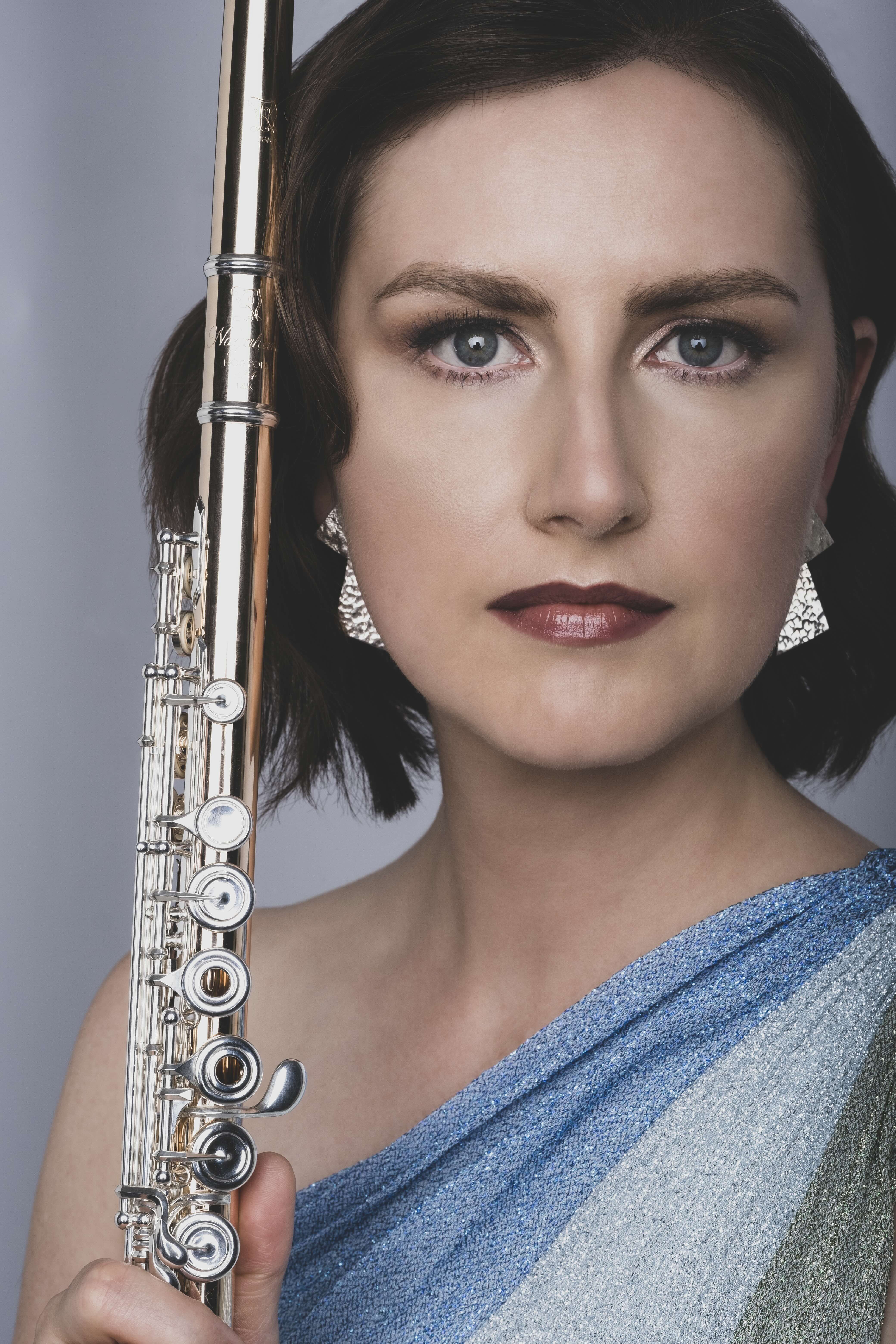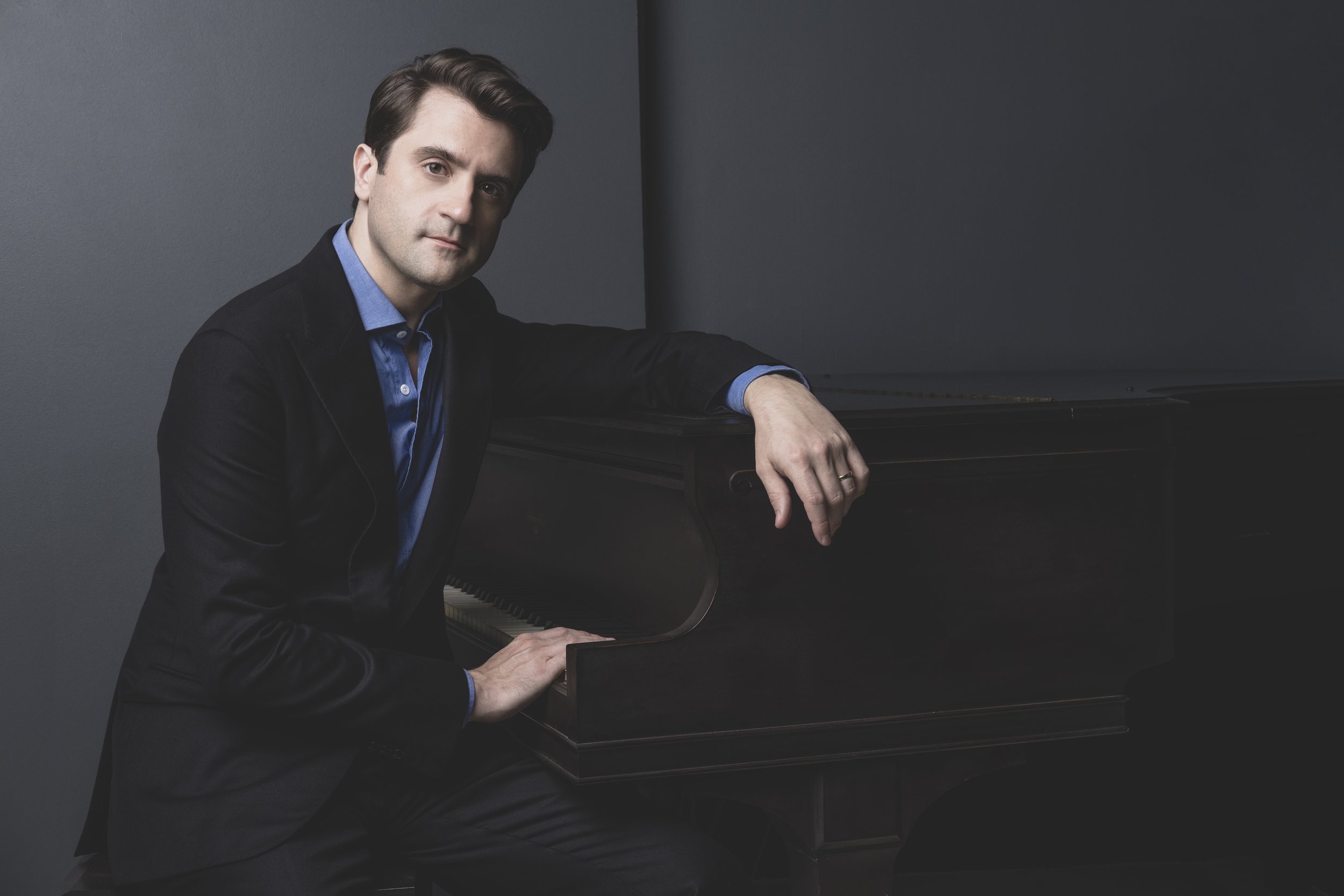Grammys 2025: UCLA faculty, members of Decoda celebrate working on Grammy-nominated pieces
Members of the chamber music collective Decoda play together at the Tippet Rise Art Center in Fishtail, Montana while recording their eponymous 2024 album. The LP feature “Revelry” by Valerie Coleman has been nominated for Best Contemporary Classical Composition. (Courtesy of Kevin Kinzley Photography and the Tippet Rise Art Center)
By Reid Sperisen
Jan. 29, 2025 3:09 p.m.
This post was updated Jan. 30 at 10:09 p.m.
Two UCLA faculty members are reveling in the recognition of a colleague’s Grammy-nominated work.
Catherine Gregory, a flutist and lecturer at the UCLA Herb Alpert School of Music, and David Kaplan, a pianist and professor at the School of Music, are both members of the chamber music collective Decoda, which includes more than 30 musicians from around the country who work together on various concerts and songwriting projects. One of the pieces recorded on Decoda’s 2024 eponymous LP, Valerie Coleman’s “Revelry,” has been nominated for a Grammy Award in the category of Best Contemporary Classical Composition. Although not nominated themselves for their contributions to the piece, Gregory said it is thrilling to have Decoda’s work receive recognition, especially as the ensemble marks more than a decade together.
“What’s really near and dear to us is: What are the creative ways that we can engage with different communities through our music?” Gregory said. “Whether it’s songwriting projects for incarcerated communities or engaging the young artists, the next artists of tomorrow, into what does it really mean to be a musician in today’s society.”

Kaplan said he grew up in New York in a family of musicians and began playing the piano before he was old enough to take lessons, but it was the passion of peers pursuing music during his time as an undergraduate at UCLA that led him to drift away from political science in favor of becoming a pianist. By comparison, Gregory said she grew up in Australia with parents who were supportive of her musical aspirations even though they were not musicians themselves. She said her childhood was marked by listening to legendary flutists, such as Jean-Pierre Rampal and James Galway, and she was able to pick up the flute starting in middle school.
“It’s where I found my voice,” Gregory said. “I loved that I could collaborate with other people.”
[Related: Grammys 2025: Grammy-nominated songwriter, alumnus KOLE discusses genre-spanning works]
Kaplan said the Decoda collective has been in residence at UCLA twice, in 2018 and 2022. When it came to the recording process for “Revelry,” Kaplan said a smaller group of musicians from the broader collective met at the Tippet Rise Art Center in Fishtail, Montana. Kaplan said he remembers walking through a forceful snowstorm when not recording. The blending of the sky with the ground as the snow fell was evocative of art and creativity, he said, and symbolized the progress the assembled members of Decoda had made on “Revelry.”
The temperature was so cold while recording in Montana that pieces of Gregory’s bass flute were frozen together when she tried to disassemble them, she said. Although the recording process required four different flutes, Gregory said it was smooth and quick compared to the extensive preparations that came before.
Clara Lyon is the co-artistic director of the Decoda collective and said she was also a part of the group of musicians who recorded “Revelry” in January 2023 during the Montana snowstorm. She said she met Kaplan in 2006 at the Boston University Tanglewood Institute and was in the same Ensemble Connect fellowship program as Gregory. The Ensemble Connect program played an integral part in the formation of Decoda, Lyon said, because most of its original members were Ensemble Collect alumni.
Kaplan and Gregory are both dynamic storytellers with their music, Lyon added.
“They (Kaplan and Gregory), from the very first note, are really in the world of the music and have an amazing ability to convey that and invite the audience in to watch the story that’s being told on stage,” Lyon said. “They both bring a real spontaneity and presence that makes you feel like you’re right in the moment with them.”
[Related: Sinatra sisters donate Frank Sinatra’s celebrated piano to UCLA]
Thematically, “Revelry” attempts to capture multiple messages with its music, Kaplan said, including both dark and light. Gregory said the title evokes both revelry in the sense of joy and ecstasy but also in turbulence. The track was named after a bourbon factory in Coleman’s hometown of Louisville, Kentucky, Kaplan said. The interpretations of its meaning can range from literal – about the contrasting celebrations accompanying bourbon and the devastation of alcoholism – to more figurative emotions based on the instrumental stretching from aggression to jubilation, he added.

In addition to working on Coleman’s “Revelry,” Gregory also played principal flute for the Experiential Orchestra, which received two Grammy nominations with Best Classical Instrumental Solo for “Perry: Concerto for Violin & Orchestra” and Best Classical Compendium for “American Counterpoints.” She said the project is focused on highlighting voices and musical perspectives that are underrepresented in the American mainstream.
Gregory said she carries an energy of curiosity into her musicianship and her classroom, as her interest in music is what propelled her to become a Fulbright Scholar and brought her to study in the United States. She said Decoda is imbued with an emphasis on fearlessness and inquisitiveness and that she is always learning from her colleagues and other artistic voices around her. There may not be a limit to such self-discovery, Gregory added, but she and her students are always searching for more knowledge through musical exploration.
“There’s never an end in sight of who you can be as an artist, always more to explore,” Gregory said. “And I think maybe the minute where you feel like, ‘Oh, I’ve made it. That’s it. That was like, perfect.’ Or maybe being an artist, maybe being a musician, maybe that’s not for you, because I think it really is this lifetime of curiosity and exploration. That’s what drives me.”
